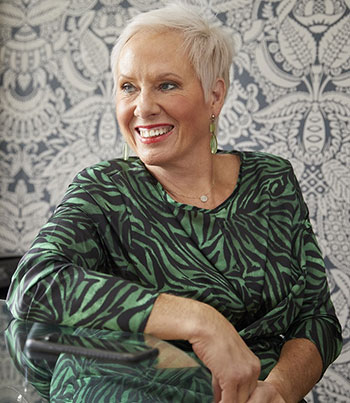
Dr Ruth Owen OBE is Chief Executive of disability charity Leonard Cheshire. Here she reflects on the Autumn Statement and asks whether it brought much-needed relief for the social care sector and for disabled people.
Have disabled people faced a more anxious wait for a budget announcement in recent memory? It depends who you ask, of course. But 2022’s Autumn Statement was always going to be a ‘crisis’ budget. The implications for living standards and essential services like social care were always going to be major.
The question beforehand was how much relief the Autumn Statement would bring, firstly for disabled people facing an escalating cost of living crisis, and secondly for the dangerously stretched social care sector. Would the government spend or save?
What we were sure about was that we needed to see intervention and support – starting with social care and ending with vital cost-of-living packages.
Hence the anxiety. Disabled people are likely to be among the worst affected by the cost-of-living crisis, and social care remains one of the most vulnerable sectors to further economic shocks. The Autumn Statement, then, comes at a critical time.
Nowhere is this truer than in social care, which is a sector on its knees. This sounds like an exaggeration; it’s closer to an understatement. Chronic underfunding and perpetual delays to reform had left the sector in a perilous place by the time the pandemic put it under unprecedented pressure. We rightly applauded carers in those dark days for their incredible work in supporting disabled people. But the stress of working through the pandemic for low pay, plus soaring costs of living, ultimately meant an exodus of staff from the sector.
To put it another way: a social care leader recently said they dreaded a new supermarket opening near a care home, because the better paying jobs there meant care staff would leave.
It’s a well-founded fear. The King’s Fund found in October that there were 165,000 vacancies in social care, and that more than half a million people were waiting for council care services. These were both new records, and wouldn’t be the last without urgent action.
The Autumn Statement wasn’t all bad news in this regard. The government put off reform again, but did commit some cash injections to stabilise the social care sector over the coming years. It buys some time, but the grant funding ultimately doesn’t amount to much: £1bn in 2023/24 and £1.7bn in 2024/25. Other funding either depends on council tax rises or is earmarked for hospital discharges.
The King’s Fund estimate the social care sector needs £7bn a year in extra funding to ensure stability, so the extra funding is a drop in the ocean. More disabled people will miss out on being able to go out, enjoy activities and socialise for lack of care; more will struggle to live independently.
Many of the problems I’ve talked about stem from the pressures on local authority budgets, which get passed on to providers in the form of smaller fees. There hasn’t been a real terms rise in funding for a decade. Certainly, the cap on care costs announced in March was a positive step for those who need care over a long period, as many disabled people do. But the cap doesn’t account for different care needs, especially where those are complex, so many will still be left without sufficient support.
At the same time, there are severe pressures on disabled people’s personal and household budgets caused by the cost-of-living crisis. Steeply rising costs not only make affording the right care even more difficult, but also put basics like food and heating out of reach.
And how serious is the crisis for disabled people? Well, one disabled person recently told us: “breakfast is free – I don’t have any.” Another said “I choose between heating and eating. I eat one meal a day.” The situation for those with care needs is no better: one person, finding their PIP would no longer cover care costs for things like trips out to exercise, described staying in bed all day to stay warm because putting the heating on is too expensive. Another saw their care assistant priced out of the job by diesel costs. We could fill this article with similar stories – that’s how serious the cost-of-living crisis is.
There was good news from the Autumn Statement, namely that the government remains committed to uprating benefits in line with inflation from next April. That uplift will help many disabled people avoid hardship. It should also help put social care back in reach for people covering their own care costs through benefits like PIP.
The government demonstrated that it knows how bad the situation is. There were some moves to better support people on disability-related benefits with fuel bills too. The latter was a £150 payment, which is again outmatched by the scale of recent price rises. Ultimately, there needs to be more done to support people with energy costs, including the introduction of a social tariff. It’s not enough – but it’s still a step in the right direction.
So, can we relax now we’ve had the Autumn Statement? Unfortunately, no. There was some welcome relief. But we’re in the social care and cost-of-living crises for the long-haul.
Let’s just hope the government are too.
More Information:
www.leonardcheshire.org/get-involved/campaign-us/social-care









